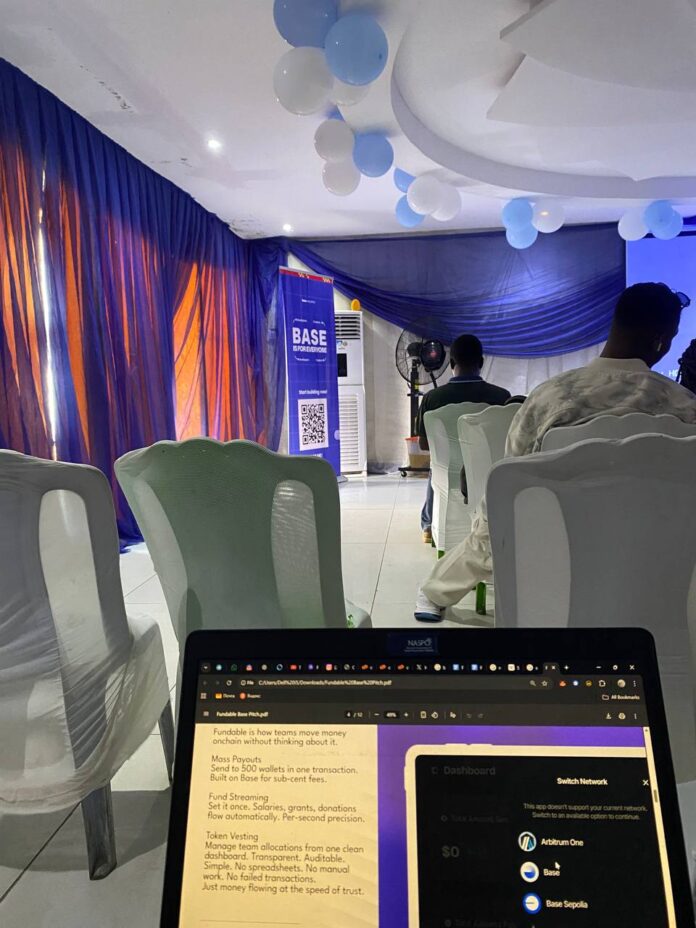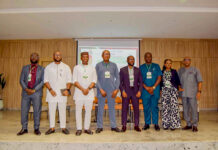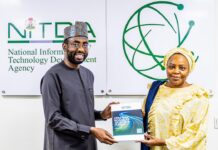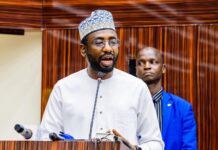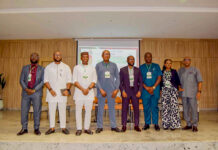After Opay Came Instant Transfers, Now Fundable Wants to Make Them Continuous
A Kaduna-based startup is reimagining how money moves – from static transfers to
programmable, continuous payments built on blockchain transparency.
In Nigeria’s booming fintech space, the story of innovation is often told through mobile wallets,
transfer apps, and digital banks competing for consumer attention. But behind the scenes, a
new kind of revolution is taking shape — one focused not on moving money faster, but on
making money smarter.
At the forefront of this quiet transformation is Fundable, a multi-chain financial platform built to
reinvent how businesses, organizations, and creators move value. Instead of treating payments
as one-off events, Fundable turns them into programmable flows — where salaries can stream
by the second, grants release automatically, and mass payouts happen with a single click.
“Most fintech companies help people send money,” explains Idris O. Hassan, Product Lead and
Co-founder at Fundable. “Fundable does something different: it helps organizations program
money. We’re building the layer that controls how money moves — the timing, the conditions,
and the automation behind the scenes.”
The Problem With How We Pay
Despite huge gains in Africa’s fintech sector, payments remain one of its biggest inefficiencies.
From late salary disbursements to complex grant tracking and project funding delays,
organizations still depend on manual processes that consume time and trust.
For freelancers, creators, and gig workers, it’s even worse; payment cycles stretch endlessly,
transaction fees cut deep, and transparency is rare. “The global movement of money still works
like the old postal system,” says Hassan. “It moves eventually, but not intelligently.”
Fundable’s vision challenges that inertia. By leveraging blockchain’s transparency and
immutability, the platform engineers *trust* directly into financial operations; no banks or
middlemen required.
The Architecture of a New Financial Flow
At its core, Fundable is designed as infrastructure — the rails on which the modern B2B2C
economy can run. The platform’s architecture operates across multiple chains, including
StarkNet, Base, Arbitrum, Farcaster, Lisk, and Bitcoin, giving users flexibility and reach
without locking them into a single ecosystem.
Its power lies in three foundational features:
1. Fund Streaming – The reinvention of payroll and grants. Money can now flow continuously
in real time, enabling salaries to trickle by the second and project funds to unlock automatically
upon milestone completion. Creators can earn proportionally as their audience engages — a
new paradigm of liquidity and fairness.
2. Bulk Disbursements – Designed for scale, this feature allows companies, startups, and
NGOs to disburse payments to hundreds — even thousands — of recipients in a single
transaction. Every payment is transparent, verifiable, and auditable on-chain, eliminating
administrative overhead and errors.
3. Campaigns and Off-Ramping – A forthcoming feature that will allow users to raise funds for
projects and causes directly on the platform, merging community-driven crowdfunding with
blockchain-backed transparency. Robust off-ramping functionality will bridge the gap between
digital and traditional finance, allowing users to convert digital assets into local currenc effortlessly.
Together, these features form what the team calls “financial streaming infrastructure” — a
system that enables money to move continuously, verifiably, and with purpose.
The Builders Behind the Vision
The team driving Fundable blends deep technical expertise with a passion for accessibility.
Abubakar Lawal Babatunde, Co-founder and Chief Executive Officer, is a familiar name in
Africa’s blockchain ecosystem. His technical experience includes roles at U.S.-based
technology firms such as Rowship Venture Studio and Radiologex Inc., where he worked on
scaling blockchain applications for real-world use. As a mentor and instructor at *TheBuidl* in
Kaduna, Babatunde has become a bridge between global blockchain standards and African
developer communities.
Idris O. Hassan, Co-founder and Product Lead, is a multidisciplinary product engineer whose
experience spans EdTech, AgTech, FinTech, and HealthTech. At Fundable, he transforms
complex financial workflows into intuitive user experiences. His approach — shaped by years of
volunteer teaching and design leadership — centers on making advanced technologies usable
for everyone.
Supporting the founding team is Abdulqadir M. Habeeb, Head of Product Strategy, who
provides operational and strategic depth. His background in technology, environmental
advocacy, and community development grounds Fundable’s mission in real-world impact.
“We’re building infrastructure,” Habeeb notes, “but also rebuilding trust — showing that financial
transparency can be human-centered.”
Adding muscle to the team’s technical execution are AbdulAfeez Aweda, a prolific Full-Stack
Developer known for building high-performance systems, and Mubarak Aminu, a seasoned
Blockchain Engineer who leads smart contract design and security integration. Together, they
ensure Fundable’s infrastructure remains fast, secure, and reliable — the kind of engineering
backbone that turns ambitious ideas into scalable products.
Reimagining Financial Trust
What sets Fundable apart isn’t only technology — it’s the philosophy of *programmable trust*.
Every transaction on the platform is recorded on-chain, creating a verifiable audit trail that both
sender and receiver can rely on.
For organizations managing grants, paying remote teams, or distributing scholarships, this
means accountability without friction. For end-users, it means payments that are fast, fair, and
traceable — not dependent on human bottlenecks or institutional delays.
“Think of Opay as the highway,” Hassan says. “Fundable is the traffic management system. We
don’t compete with existing fintech; we complement it by controlling how money moves — not
just where.”
The B2B2C Future
Fundable’s biggest opportunity lies in its B2B2C model — empowering businesses, platforms,
and NGOs to offer their users a transparent, world-class financial experience.
By providing the underlying infrastructure for real-time earnings, automated vesting, and
verifiable disbursements, Fundable allows organizations to deepen trust and engagement with
their communities. “We want every team that builds on Fundable to become more transparent
by default,” says Babatunde.
The implications extend beyond payments. Fundable’s model hints at a future where financial
transparency becomes a baseline expectation — where organizations can manage global
resources with startup-like precision, and individuals can participate in the economy without
friction or delay.
From Kaduna to the World
That this innovation is emerging from Nigeria is no coincidence. Kaduna, long known as a hub
of education and public service, is quietly becoming a center for frontier technology. The city’s
growing network of builders, designers, and blockchain educators has fostered startups that are
global in ambition but local in execution.
“Technology is only transformative when it solves problems that matter,” Lawal reflects. “For us,
that means giving African teams — and eventually global teams — the financial tools they need
to move at the speed of trust.”
Fundable’s rise represents more than a new product; it signals a shift in what African innovation
looks like. It’s not just about fintech apps competing for downloads. It’s about infrastructure-
level innovation — about building the rails that will power the world’s next generation of
Finance.
From their base in Kaduna, Babatunde, Hassan, and their team are demonstrating that Africa’s
next contribution to global technology won’t just be in usage — it will be in architecture.
As the world moves toward real-time, transparent, and programmable money, Fundable
Finance stands as proof that the future of finance can be both digital and deeply human.


